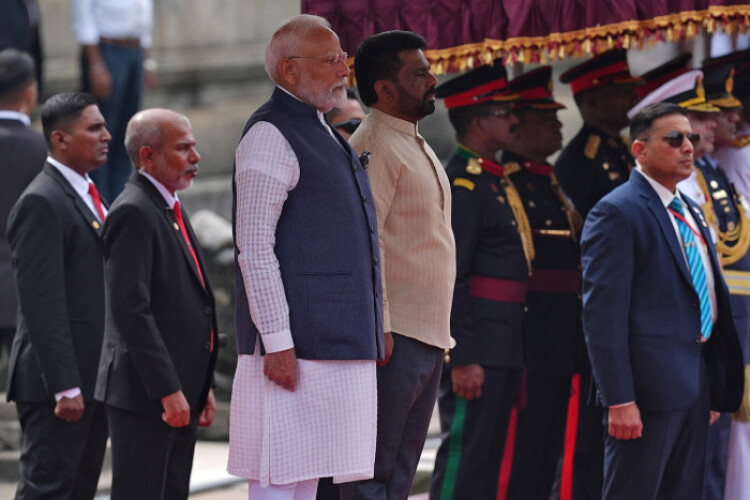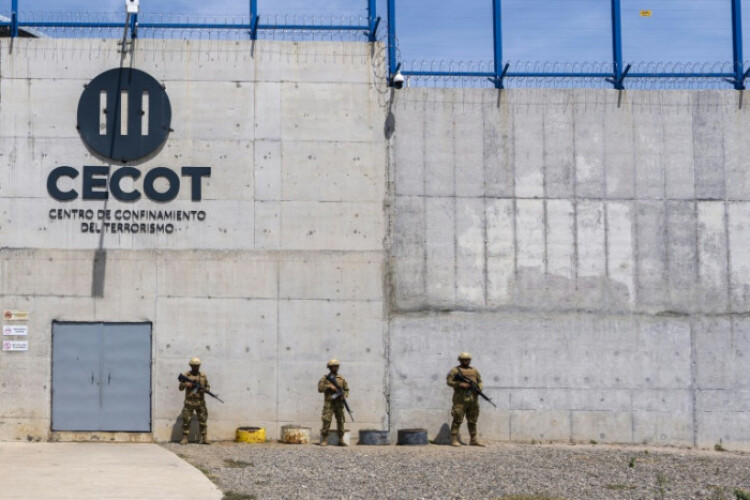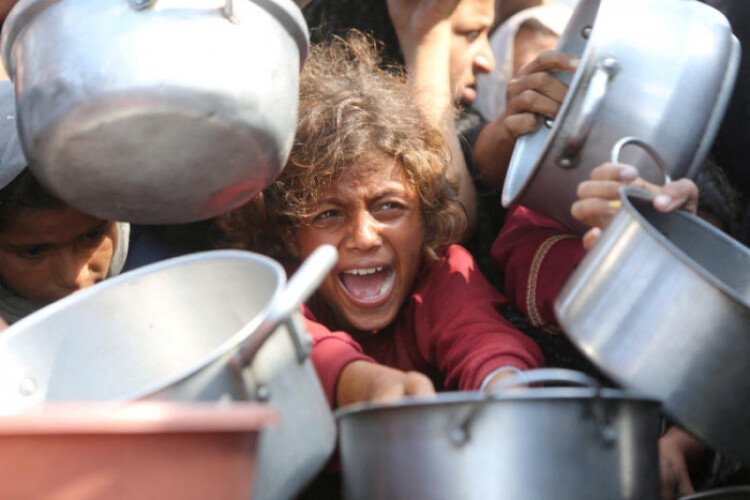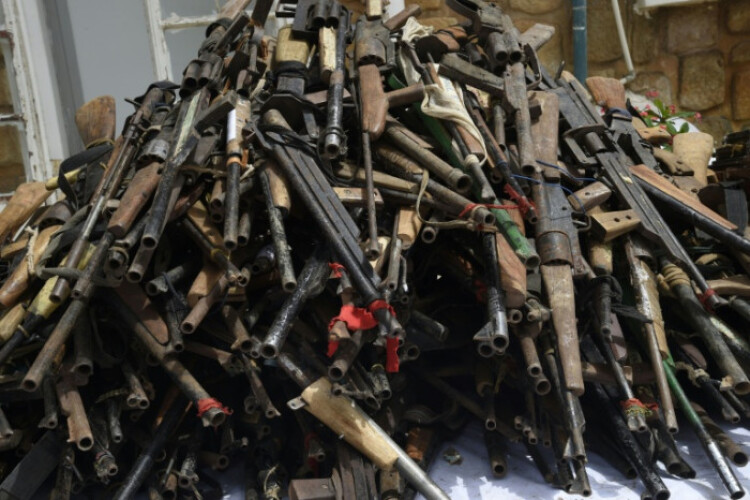
COLOMBO - India and the United Arab Emirates have agreed to develop an energy hub in Sri Lanka, the Indian foreign ministry said on Saturday, as New Delhi’s competition with China grows in the Indian Ocean island nation.
The three nations signed the pact for the hub during Indian Prime Minister Narendra Modi’s visit to Sri Lanka, the first by a global leader since Sri Lankan President Anura Kumara Dissanayake took office in September.
New Delhi and Colombo have worked to deepen ties as India’s southern neighbour recovers from a severe financial crisis triggered in 2022, during which India provided $4 billion in financial assistance.
Saturday’s agreement boosts New Delhi’s competition with China, whose state energy firm Sinopec has signed a deal to build a $3.2-billion oil refinery in the southern port city of Hambantota.
The energy hub in the strategically important city of Trincomalee, a natural harbour in the Sri Lanka’s east, will involve construction of a multi-product pipeline and may include using a World War II tank farm partly held by the Sri Lankan subsidiary of Indian Oil Corp, Indian Foreign Secretary Vikram Misri told reporters in Colombo.
“The UAE is a strategic partner for India in the energy space and therefore was an ideal partner for this exercise that is being done for the first time in the region,” Misri said.
“The exact contours of the UAE’s role will be elaborated once the business-to-business discussions kick off.”
The three nations will next choose business entities that will consider the financing and feasibility of projects for the hub, he said.
Modi also inaugurated a $100-million solar power project, a joint venture between Ceylon Electricity Board and India’s National Thermal Power Corp.
India and Sri Lanka also concluded their debt restructuring process, Misri said. Sri Lanka owes about $1.36 billion in loans to the Exim Bank of India and State Bank of India, according to Sri Lankan Finance Ministry data.
Colombo began restructuring talks after it defaulted on its debt in May 2022, signing a preliminary deal with bilateral creditors Japan, India and China last June.
India and Sri Lanka also signed pacts on power grid connectivity, digitisation, security and healthcare.
The three nations signed the pact for the hub during Indian Prime Minister Narendra Modi’s visit to Sri Lanka, the first by a global leader since Sri Lankan President Anura Kumara Dissanayake took office in September.
New Delhi and Colombo have worked to deepen ties as India’s southern neighbour recovers from a severe financial crisis triggered in 2022, during which India provided $4 billion in financial assistance.
Saturday’s agreement boosts New Delhi’s competition with China, whose state energy firm Sinopec has signed a deal to build a $3.2-billion oil refinery in the southern port city of Hambantota.
The energy hub in the strategically important city of Trincomalee, a natural harbour in the Sri Lanka’s east, will involve construction of a multi-product pipeline and may include using a World War II tank farm partly held by the Sri Lankan subsidiary of Indian Oil Corp, Indian Foreign Secretary Vikram Misri told reporters in Colombo.
“The UAE is a strategic partner for India in the energy space and therefore was an ideal partner for this exercise that is being done for the first time in the region,” Misri said.
“The exact contours of the UAE’s role will be elaborated once the business-to-business discussions kick off.”
The three nations will next choose business entities that will consider the financing and feasibility of projects for the hub, he said.
Modi also inaugurated a $100-million solar power project, a joint venture between Ceylon Electricity Board and India’s National Thermal Power Corp.
India and Sri Lanka also concluded their debt restructuring process, Misri said. Sri Lanka owes about $1.36 billion in loans to the Exim Bank of India and State Bank of India, according to Sri Lankan Finance Ministry data.
Colombo began restructuring talks after it defaulted on its debt in May 2022, signing a preliminary deal with bilateral creditors Japan, India and China last June.
India and Sri Lanka also signed pacts on power grid connectivity, digitisation, security and healthcare.






